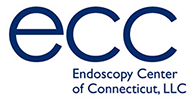Your Rights and Protections Against Surprise Medical Bills
When you get emergency care or get treated by an out-of-network provider at an in-network hospital or ambulatory surgical center, you are protected from surprise billing or balance billing.
What is “balance billing” (sometimes called “surprise billing”)?
When you see a doctor or other health care provider, you may owe certain out-of-pocket costs, such as a copayment, coinsurance, and/or a deductible. You may have other costs or have to pay the entire bill if you see a provider or visit a health care facility that isn’t in your health plan’s network.
“Out-of-network” describes providers and facilities that haven’t signed a contract with your health plan. Out-of-network providers may be permitted to bill you for the difference between what your plan agreed to pay and the full amount charged for a service. This is called “balance billing.” This amount is likely more than in-network costs for the same service and might not count toward your annual out-of-pocket limit.
“Surprise billing” is an unexpected balance bill. This can happen when you can’t control who is involved in your care—like when you have an emergency or when you schedule a visit at an in-network facility but are unexpectedly treated by an out-of-network provider.
You are protected from balance billing for:
Emergency services
If you have an emergency medical condition and get emergency services from an out-of-network provider or facility, the most the provider or facility may bill you is your plan’s in-network cost-sharing amount (such as copayments and coinsurance). You can’t be balance billed for these emergency services. This includes services you may get after you’re in stable condition, unless you give written consent and give up your protections not to be balanced billed for these post-stabilization services.
Under Connecticut law, for emergency services rendered to an insured by an out-of-network health care provider, health carriers may not impose an out-of-pocket expense that is greater than the out-of-pocket expense that would be imposed if such emergency services were rendered by an in-network provider.
Certain services at an in-network hospital or ambulatory surgical center
When you get services from an in-network hospital or ambulatory surgical center, certain providers there may be out-of-network. In these cases, the most those providers may bill you is your plan’s in-network cost-sharing amount. This applies to emergency medicine, anesthesia, pathology, radiology, laboratory, neonatology, assistant surgeon, hospitalist, or intensivist services. These providers can’t balance bill you and may not ask you to give up your protections not to be balance billed.
If you get other services at these in-network facilities, out-of-network providers can’t balance bill you, unless you give written consent and give up your protections.
You’re never required to give up your protections from balance billing. You also aren’t required to get care out-of-network. You can choose a provider or facility in your plan’s network.
Connecticut Law:
Effective July 1, 2016, Connecticut law defines “surprise bill” as a bill for non-emergency health care services received by an insured for services rendered by an out-of-network health care provider at an in-network facility during a service or procedure that was performed by an in-network provider or previously approved by the health carrier, and the insured did not knowingly elect to receive the services from the out-of-network health care provider. The Connecticut law affects Connecticut consumers with “fully insured” health plans regulated by the Connecticut Insurance Department (not employer-sponsored self-insured plans).
“Health care provider” means a person licensed to provide health care services as a: physician, physician assistant, chiropractor, naturopath, podiatrist, athletic trainer, physical therapist, occupational therapist, alcohol and drug counselor, radiographer, radiologic technologist, radiologist assistant, nuclear medicine technologist, midwife, nurse, nurse’s aide, dentist, dental assistant, dental hygienist, optometrist, optician, respiratory care practitioner, perfusionist, behavior analyst, central service technician, phlebotomist, psychologist, marital and family therapist, clinical social worker, master social worker, massage therapist, dietician-nutritionist or acupuncturist.
When balance billing isn’t allowed, you also have the following protections:
- You are only responsible for paying your share of the cost (like the copayments, coinsurance, and deductibles that you would pay if the provider or facility was in-network). Your health plan will pay out-of-network providers and facilities directly.
- Your health plan generally must:
- Cover emergency services without requiring you to get approval for services in advance (prior authorization).
- Cover emergency services by out-of-network providers.
-
- Base what you owe the provider or facility (cost-sharing) on what it would pay an in-network provider or facility and show that amount in your explanation of benefits.
- Count any amount you pay for emergency services or out-of-network services toward your deductible and out-of-pocket limit.
If you believe you’ve been wrongly billed, you may email the Connecticut Insurance Department (insurance@ct.gov) for state law questions (or call 800-203-3447 or 860-297-3900). For federal law questions, you may call the No Surprises Help Desk at 1-800-985-3059. Visit www.cms.gov/nosurprises for more information about your rights under federal law.
Visit https://portal.ct.gov/CID/Consumer-Alerts/Consumer-Alert-20211228 for more information about your rights under state law.

